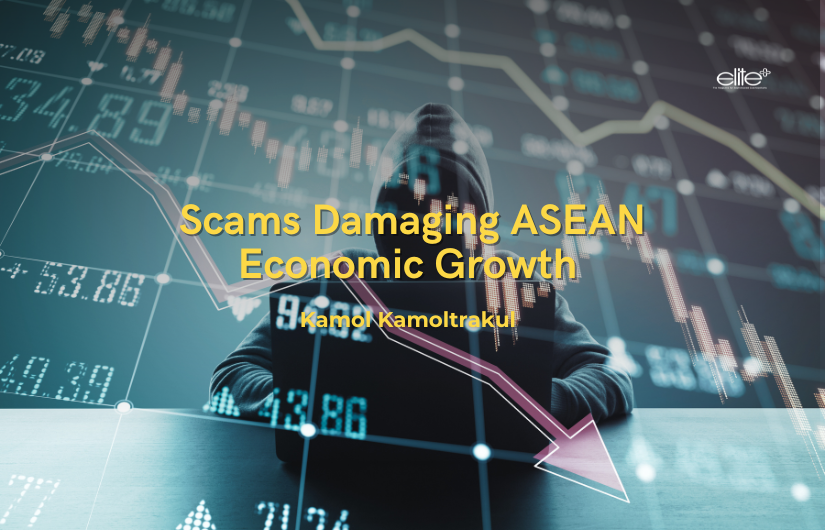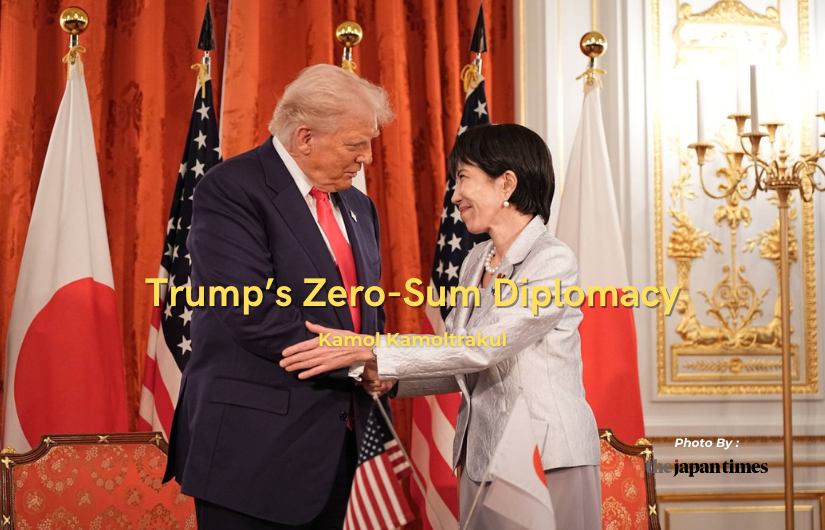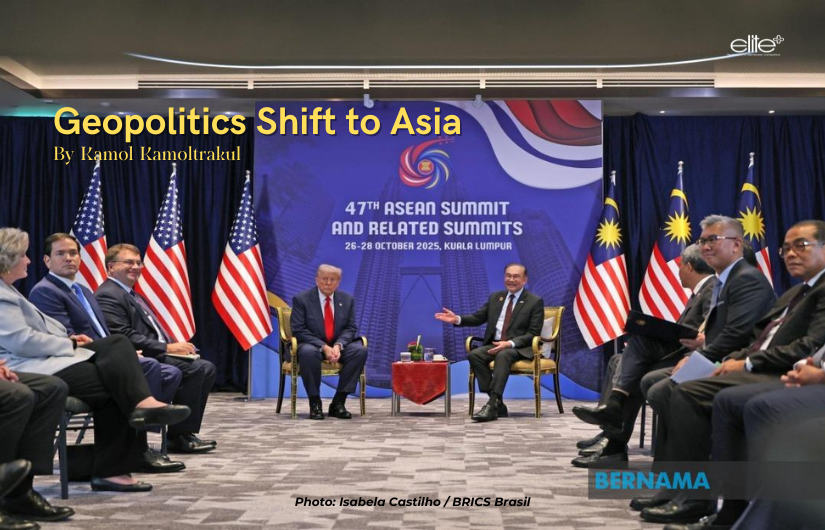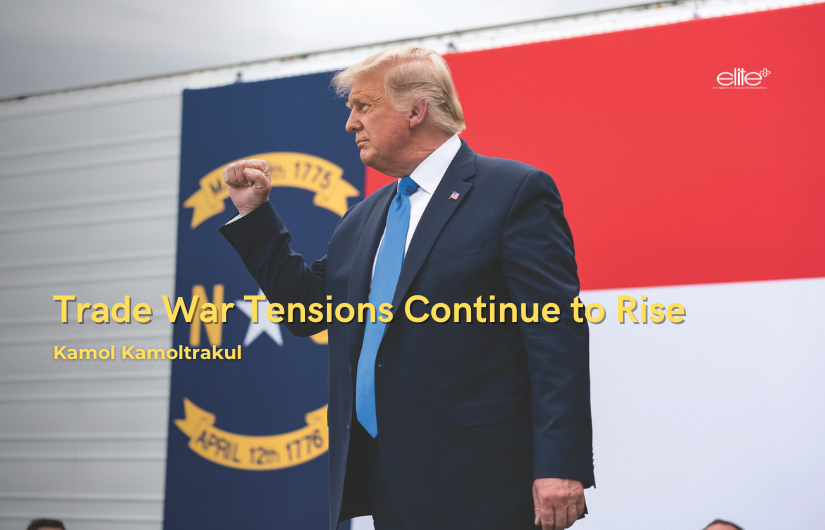ASEAN Takes Bolder Moves to Hedge US Tariff Threats
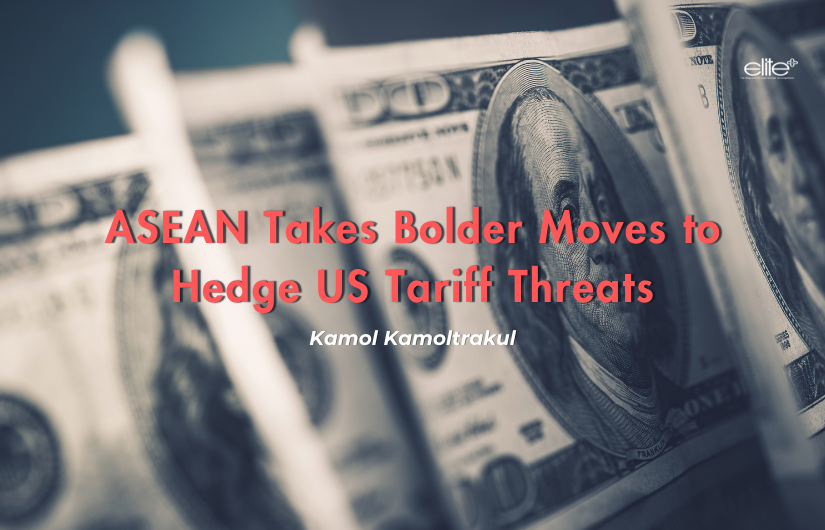
Rule-based, free trade principles were overruled by Trump in his reciprocal tariff and trade war. While some countries, Vietnam in particular, chose direct bilateral negotiation with the US, the ASEAN trade bloc took a wider approach.Amid the threat of steep US tariffs, the 46th ASEAN Summit, 2nd ASEAN-GCC Summit and ASEAN-GCC-China Summit in Kuala Lumpur, Malaysia, on 26-27 May 2025, agreed to take bolder moves to stave off the threat. Despite differences in development and cultural backgrounds, leaders of Southeast Asian nations and several Gulf states, as well as China, held a historic first meeting, pledging to build a new model of cooperation against a backdrop of an increasingly complex global environment.
Since the major Southeast Asian economies have been forced to rely on world markets for their growth and development, exports in 2023 as a percentage of GDPs accounted for 65% for Thailand, 68% for Malaysia, 87% for Vietnam and 174% for highly trade-dependent Singapore. Meanwhile, Indonesia and the Philippines recorded figures of 21% and 26%, respectively, indicating that these two economies can count more on internal consumption, investment and government spending as major portions of their economic growth.
Malaysia’s Foreign Minister Mohamad Hasan highlighted that ASEAN nations could be among those most heavily hit by US tariffs. “We must seize this moment to deepen regional economic integration, so we can better shield our region from external shocks,” he said in opening remarks, going on to say, “We must stress our strongest resolve to stand together as ASEAN in safeguarding the region’s economic stability, resilience and long-term growth trajectory.”
Hence, the leaders at the Summits, pledged to further deepen internal trade and investment and upgrade ASEAN Plus One FTAs and the Regional Comprehensive Economic Partnership Agreement (RCEP). They said they must also improve ASEAN’s internal coordination by making full use of existing cross-sectoral mechanisms and the newly established ASEAN Geo-economic Task Force. Hasan said, "To this end, we task relevant ministers to monitor the current global economic challenges and coordinate as appropriate for a strategic and coherent ASEAN response."
In a statement released late on Tuesday, 27 May, in response to global economic and trade uncertainties, ASEAN leaders noted the continued rise in unilateral actions relating to tariffs and other trade and investment restrictions as well as the growing risk of global fragmentation. The inaugural Association of Southeast Asian Nations (ASEAN)-Gulf Cooperation Council (GCC)-China Summit came as ASEAN embarks on a concerted push for new trading partners amid steep tariffs threatened by the United States. Both China and the GCC, comprising Saudi Arabia, the United Arab Emirates, Qatar, Kuwait, Bahrain and Oman, have established partnerships with ASEAN. This was the first time the Southeast Asian bloc has expanded a mechanism to include both a regional organisation and dialogue partner countries.
ASEAN and GCC countries account for around one-quarter of the world’s total population and economic output. ASEAN underscores that unilateral and retaliatory trade actions are counterproductive and risk exacerbating global economic fragmentation, especially when these actions create indirect impacts on ASEAN, Dato’ Seri Anwar Ibrahim, Malaysian Prime Minister and ASEAN chairman, said in a joint communique also listing key outcomes and agreements on wide-ranging issues at the summit.
Anwar also stressed the Summits’ participants’ strongest resolve to stand together in safeguarding the region’s economic stability, resilience and long-term growth trajectory. He also reiterated that unilateral and retaliatory trade actions are counterproductive and risk exacerbating global economic fragmentation, especially when these actions create indirect impacts on ASEAN.
ASEAN leaders expressed "deep concern" over recent announcements by the United States to impose unilateral tariffs and their potential impact on ASEAN economies.
Furthermore, GCC secretary-general Jassem Al-Budaiwi from Kuwait said that these common interests include strengthening food and energy security in the face of geopolitical fluctuations. He went on to say that accelerating digital transformation through the establishment of innovation centres, confronting climate change by investing in clean energy and protecting freedom of navigation and the safety of maritime lanes, especially in the Red Sea, are also major concerns
The ASEAN Summit this year was different to former gatherings because it was a historic first summit for ASEAN, China and the Gulf bloc, with the aim to expand intertrade and self-reliance to reduce reliance on US trade.
The leaders agreed to a new global cooperation model, ‘1+1+1 greater than 3’. At the inaugural ASEAN-Gulf Cooperation Council-China Summit, leaders called for greater alignment between the regions, despite their differences.
Anwar told reporters on Tuesday evening that the bloc is in talks to sign a free trade agreement (FTA) with the GCC while also exploring an FTA with the European Union. All agree that the FTA with GCC and the EU along with intra-ASEAN trade still need more development, and they hope by next October they will see results, referring to the second ASEAN summit Malaysia will host again in that month.
ASEAN has also reached a “consensus” on how it will respond to the US tariffs. Anwar stated that member states can proceed with bilateral negotiations with Washington, but not at the expense of another ASEAN member. They can continue to pursue bilateral engagements, but without sacrificing the interests of ordinary persons or ASEAN as a whole. At the same time, Anwar said ASEAN members should talk about cohesiveness and working together, but in terms of intra-ASEAN trade, making a common decision to protect ASEAN turf. In geopolitical issues, members sometimes do not necessarily share this cohesiveness.
Chinese Premier Li Qiang, when giving his opening remarks, said that ASEAN underscores how unilateral and retaliatory trade actions are counterproductive and risk exacerbating global economic fragmentation, especially when these actions create indirect impacts on ASEAN.
Hence, to reduce the impact, China and ASEAN have already completed negotiations on an upgraded 3.0 version of the China-ASEAN Free Trade Area agreement. Fully connecting their markets will unleash enormous development potential and generate even greater effects. ASEAN currently has dialogue partnerships with 11 parties: Australia, Canada, China, the European Union, India, Japan, New Zealand, South Korea, Russia, the United Kingdom and the US.
All leaders agreed that the uncertainties arising from these tariffs and potential retaliatory taxes could heighten volatility in both capital flows and exchange rates. Thus, they will continue to engage in a frank and constructive dialogue with the US and commit to not imposing any retaliatory measures in response to US tariffs.
Meanwhile, a US federal appeals court temporarily reinstated the most sweeping of President Donald Trump's tariffs on Thursday, 29 May, a day after a trade court had ruled that Trump had exceeded his authority in imposing the duties and ordered an immediate block on them.
The surprise ruling by the US Court of International Trade had threatened to kill or at least delay the imposition of Trump's so-called Liberation Day tariffs on imports from most US trading partners and additional tariffs on goods from Canada, Mexico and China. Again, the world remains in a turbulent time of uncertainty.

Kamol Kamoltrakul 48 Posts
Visiting lecturer: Navy Academy Institution, NIDA, School of Governor, Ministry of Interior, Chulalongkorn University, Former Lecturer, ABAC Honorary Advisor Trade and Industry Committee Senate. Senior advisor, Standing Committee on Finance and Banking, The House of Representative. Former Advisor to the Minister of Interior Board Member of ThaiPBS Board Member Of Thai Consumer Council Columnist : Prachachart Business Weekly, Matichon Weekly, Khom Chad Luke Daily Former Program Director Asian Forum for Human Rights and Development ( FORUM-ASIA).




